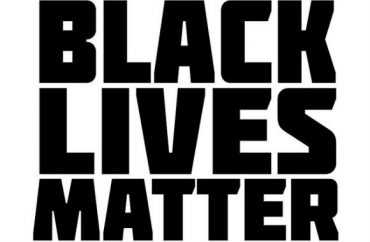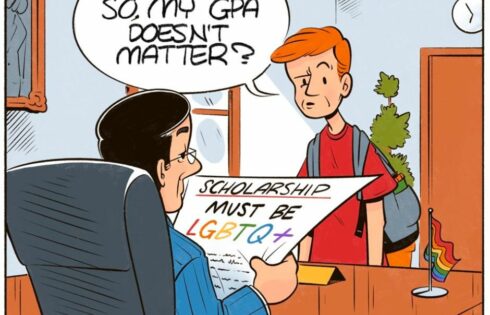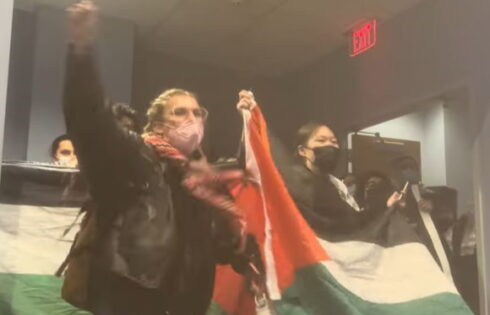
Bar passage rate is plummeting
When a law professor wore a Black Lives Matter shirt to class earlier this year, she saw it as a teaching tool and exercise in academic freedom.
Some of her “concerned students” saw the gesture as an attempt to push her “personal beliefs” on them, but also a threat to their ability to become practicing lawyers – and told her so in a much-derided memo.
The incident was revived this month after Inside Higher Ed confirmed the institution was southern California’s Whittier Law School, whose student body is majority-minority, and the professor was Patricia Leary.
Though Leary’s public critique of the anonymous memo has drawn most of the attention, the students’ deeper anxieties have been overshadowed: Whittier’s bar passage rate is plummeting.
And if new accreditation standards under review at the American Bar Association are implemented, the value of students’ degrees from the $46,000-a-year institution may be imperiled.
‘No shame in displaying appalling levels of discrimination’
Leary’s months-old rebuke of her students went viral after Black Lives Matter protests against police killings of black men in Louisiana and Minnesota in early July, according to Inside Higher Ed.
The anonymous students had written a memo and slid it under her door, Leary told the Whittier community in a message that included both the students’ memo and her response.
Prof. Leary’s Response by KathrynRubino on Scribd
The students scolded her for implying that nonblack students at Whittier don’t matter, calling Black Lives Matter a “racist and anti-law enforcement” movement and accusing her of “indoctrination.”
Their memo suggests that Leary’s shirt was the last straw in a series of grievances against the school itself, which is “experiencing an unprecedented decline in bar passage rate.” In light of this, the students tell Leary to “utilize energy to actually teach the law instead of continue to express hateful messages.”
They fear “retaliation” if they identify themselves, the students wrote: “It is clear that the opinions expressed within this letter are not welcome.” The memo claims the “administration and faculty, including you, have shown no shame in displaying appalling levels of discrimination.”
And the students hint that they will seek redress from Whittier’s incoming dean, current Prof. Judith Daar, who takes over Aug. 1.
Prof Leary gives a touching speech at the WLS 50th birthday! #whittier #lawschool #50 #birthdaycelebration #wlslaw pic.twitter.com/Hmz5IQ33m6
— Whittier Law School (@Whittier_Law) April 15, 2016
Leary had worn the shirt to her Criminal Procedure class on a day when it would discuss police violence against black people, the longtime professor wrote in her “Response to Concerned Students Memo.”
She wrote a response in two parts, first a point-by-point answer to the students’ premises and then a critique of their writing and tone.
Beyond her defense of the Black Lives Matter movement, Leary told students they were wrong to view themselves as “consumers” who can make demands because they pay tuition.
“I believe in your entitlement to assert your needs and desires even more strongly than you do,” she wrote. “You would be just as entitled to express yourself to us if the law school were entirely tuition free.”
Even if they are not “paying for my opinion,” Leary said, “You are not paying me to pretend I don’t have one.” Neither Leary nor interim Dean John Fitzgerald responded to College Fix inquiries.
At @Whittier_Law… #BlackLivesMatter pic.twitter.com/NchyMJXc71
— Curtis Morrison (@curtismorrison) April 25, 2016
This isn’t the first time an educator’s personal views have affected her teaching job. In 2007, a federal court ruled against a lawsuit by Deborah Mayer that claimed she was illegally denied rehire by the Monroe County School District. Mayer had distributed a Time article opposing the war in Iraq.
‘Telling us what she thinks’ instead of bar prep
Social media response to Leary’s letter suggests that most observers have taken her side against the students.
Black culture news site The Root put her on a list of the “wokest white people we know.” (Dictionary.com added “woke” this week, defined as being “actively aware of systemic injustices” related to civil rights.)
The Fix identified two people on Facebook, Steven Hittelman and Jeff Isles, who claim to be former students of Leary, but neither responded to requests for comment.
Hittelman suggested that conservative students had driven her away from her previous university, Southwestern, while Isles said he took Criminal Procedure from Leary as well and “drove her insane” with his conservative views.
Student reviews on RateMyProfessors are overall positive toward Leary, a 25-year veteran of Whittier, but several resemble the grievances aired in the anonymous memo.
While she is well liked and described as “super helpful and a dear sweet lady,” she also draws a common critique of letting her ideology and views get in the way of her teaching.
A 2012 review faults Leary for spending “too much time telling us what she thinks … rather than training us for the Bar” exam, while a 2011 review says Leary’s “teaching method was too geared toward doing things her way rather than Bar prep.”
Leary doesn’t bother addressing the memo’s suggestion that her curricular choices are part of a broader problem at Whittier, saying students’ specific criticisms are obscured by “the threatening and overblown rhetoric” in the memo.
Fewer students of color under accreditation proposal?
Whittier’s own statistics show a sharp drop in its bar passage rate in just three years: from a 70 percent “California first-time pass rate” in July 2012 to just 38 percent in July 2015.
These statistics could mean big trouble for Whittier moving forward if the American Bar Association approves a March proposal to raise the minimum acceptable bar passage rate to 75 percent of students within two years of their graduation. (The current standard gives them five years and provides other exceptions.)
Congratulations Whittier Law School Class of 2016!! pic.twitter.com/qNzNmvEedv
— Whittier Law School (@Whittier_Law) May 14, 2016
In an article for Law Practice Today earlier this month, lawyer Robert Furnier warned that this proposed accreditation standard – an amendment to “Standard 316” – would “disproportionately impact law schools with a high concentration of students of color,” such as historically black (HBCU) law schools, because students of color tend to have lower bar passage rates.
The likely result is that HBCUs would have to tighten their admission requirements, producing fewer lawyers of color, Furnier wrote.
Proposed ABA Standard 316: Threat to Diversity in Law Schools and Legal Profession? https://t.co/2yJpc127Zj #lptoday via @lawpracticetips
— Society of American Law Teachers (@SaltLawOrg) July 18, 2016
Though Whittier’s largest demographic population is white, it is closely followed by Hispanic students, and students of color combined outnumber whites.
The ABA is holding a hearing on Standard 316 at its annual meeting in August, and its Council may vote on a final proposal in October, according to Furnier.
Whittier also has “one of the worst track records in the country” when it comes to student employment in “full-time, long-term attorney jobs” nine months after graduation – about one in four, according to an Orange County Register article from last year.
Like The College Fix on Facebook / Follow us on Twitter
IMAGE: Teacher Dude/Flickr




Please join the conversation about our stories on Facebook, Twitter, Instagram, Reddit, MeWe, Rumble, Gab, Minds and Gettr.